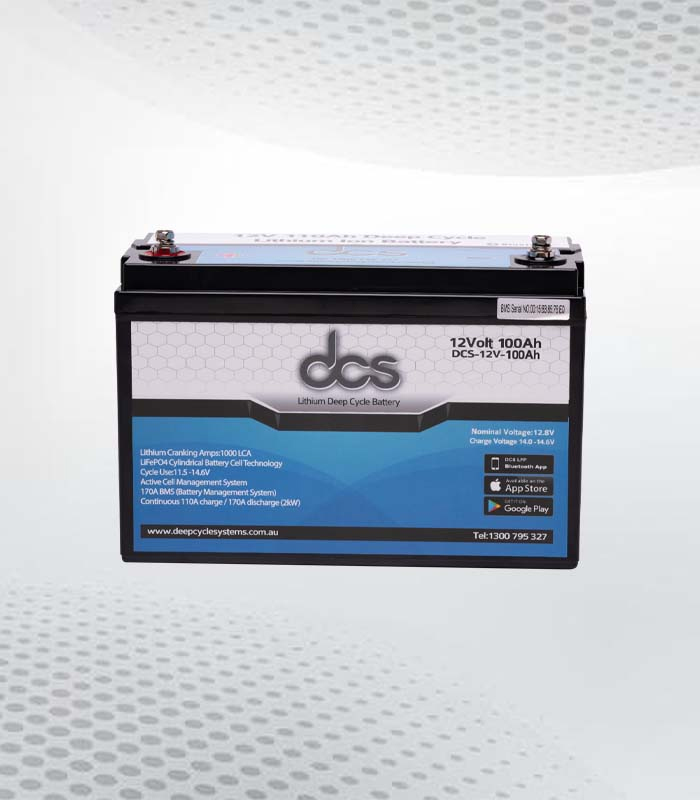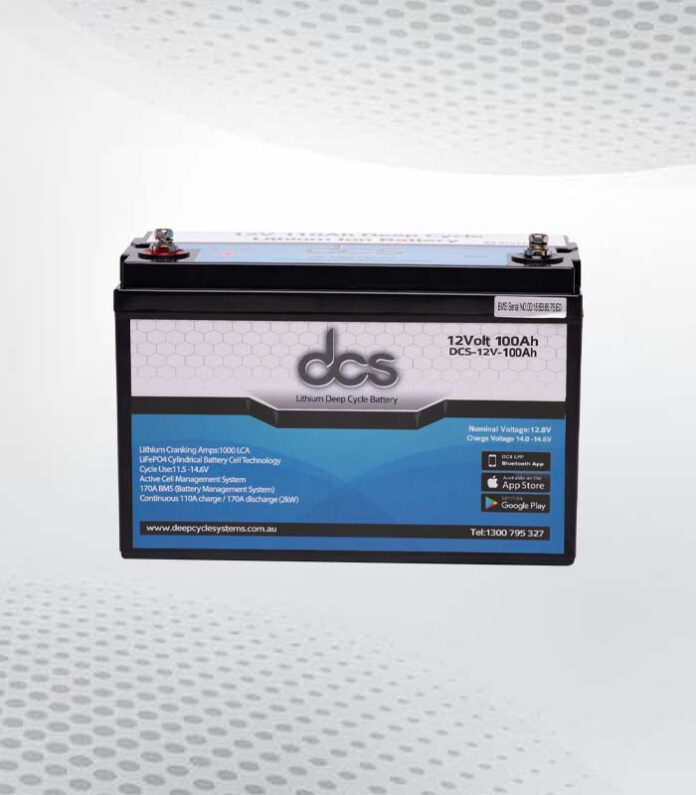Regarding power and energy, efficiency and reliability are both critical. But what if you could have both? This blog post explores how a 200 amp hour lithium battery can deliver greater efficiency and reliability. We’ll discuss the latest technology behind this type of battery, and how its unique features make it an ideal choice for various applications. With the right knowledge and implementation, you can unlock the full potential of a 16 amp hour battery and take your projects to the next level.
The Evolution Of Batteries
Over the years, batteries have come a long way in terms of efficiency and reliability. In the early days, batteries were bulky and limited in their capabilities. They relied on simple chemical reactions to produce a small amount of electrical energy. As technology progressed, batteries became more compact and powerful. The introduction of rechargeable batteries revolutionized the way we use portable devices, allowing us to use them for extended periods without constantly replacing batteries.
Benefits Of Upgrading To A 200 Amp Hour Battery
If you want to take your projects to the next level, upgrading to a 200-amp hour lithium battery is the way to go. Several benefits come with this upgrade that will make a significant difference in your power needs.
- First and foremost, the increased capacity of a 200 amp hour battery means you’ll have access to more power for longer. Whether powering up off-grid systems, running a construction site, or providing backup power during emergencies, this battery will deliver the reliability and longevity you need.
- In addition to its capacity, a 200-amp hour lithium battery offers unparalleled efficiency. With the latest lithium-ion technology, these batteries charge faster and more efficiently, saving you valuable time. No more waiting around for hours for your battery to recharge. You’ll be up and running quickly, allowing you to focus on your projects without interruptions.
- Another key advantage of upgrading to a 200-amp hour lithium battery is durability. These batteries are designed to withstand the rigors of various applications, including extreme temperatures and demanding environments. You can rely on them to perform consistently and hold up under pressure.
Understanding The Amp Hour Rating
Understanding the amp hour rating of a battery is crucial when choosing the right power source for your project. So, what exactly does amp hour rating mean? In simple terms, it measures the amount of energy a battery can deliver over a specific period. The amp hour rating is typically displayed as Ah or Ahr, representing the battery’s capacity. A higher amp hour rating means that the battery can provide more energy for longer
It’s important to note that the actual usage time of a battery may vary depending on the specific application and the amount of power required. Factors such as temperature, discharge rate, and battery age can also affect the overall performance of a battery. When selecting a battery with a specific amp hour rating, it’s essential to consider the power requirements of your project. If you have devices or equipment that demand high power, opting for a battery with a higher amp hour rating will ensure a longer runtime and reduce the need for frequent recharging or battery replacements.
Going Beyond Efficiency With A 200-Amp Hour Battery
Regarding power and energy, efficiency is important, but what if you could go beyond efficiency and unlock even more potential? That’s where the 200-amp hour battery comes in. This powerhouse of a battery offers not just efficiency, but also unmatched reliability and extended runtime. With its larger capacity, the 200-amp hour battery can deliver a substantial amount of energy for a longer period. Whether you’re powering up a project that requires a lot of juice or simply want peace of mind knowing you have a long-lasting power source, this battery has you covered.
Introducing The Lithium Advantage
When it comes to powering your projects, you need a battery that delivers efficiency and offers reliability and durability. That’s where the lithium advantage comes in.
Lightweight And Compact
Lithium batteries are lightweight and compact, unlike traditional lead-acid batteries, making them ideal for portable devices and projects on the go. With their high energy density, they can deliver substantial power in a small package, giving you more flexibility in your projects.
Longer Lifespan
But the advantages of lithium batteries don’t stop there. They also have a longer lifespan than other battery types, so you’ll spend less time and money replacing them. Lithium batteries have a higher charge retention rate, so they can hold their charge for longer periods, even when not in use. This is particularly useful for backup power applications or emergencies where reliable power is essential.
Faster Charge Time
Furthermore, lithium batteries have a faster charge time than other battery types, allowing you to return to work or play sooner. No more waiting around for hours for your battery to fully charge. You can be up and running with a lithium battery in no time.
Addressing Common Concerns With Lithium Batteries
As with any technology, there are often concerns and misconceptions surrounding lithium batteries. Addressing these concerns and providing accurate information is important to help you make informed decisions.
- One common concern is the safety of lithium batteries. While it’s true that improper handling or misuse of lithium batteries can pose risks, advancements in technology have significantly enhanced their safety features. Lithium batteries now have built-in protection circuits that prevent overcharging, over-discharging, and short circuits.
- Another concern is the cost of lithium batteries compared to other battery types. While it’s true that lithium batteries can be initially more expensive, they offer a better return on investment in the long run. With their longer lifespan and higher charge retention rate, lithium batteries require fewer replacements and provide more value over time.
- Lastly, some may worry about the environmental impact of lithium batteries. While it’s true that improper disposal of lithium batteries can have negative consequences, responsible recycling programs are widely available to ensure proper disposal and minimize environmental impact.
- By addressing these common concerns, we hope to provide you with the necessary information to make an informed decision about upgrading to a 200-amp hour lithium battery. Don’t let misconceptions hold you back from experiencing lithium batteries’ efficiency, reliability, and durability.
Investing In Long-Term Reliability And Durability
When choosing a battery for your projects, investing in long-term reliability and durability is essential. That’s where a 200-amp hour lithium battery truly shines. This powerhouse of a battery is built to last, with the capacity to deliver a substantial amount of power over an extended period.
By upgrading to a 200-amp hour lithium battery, you’re not only ensuring that your projects have access to a reliable and long-lasting power source, but you’re also investing in a battery that can withstand the rigors of various applications. These batteries are designed to perform consistently, even in extreme temperatures and demanding environments. Whether you’re powering up off-grid systems or providing backup power during emergencies, you can trust that a 200-amp hour lithium battery will withstand pressure.
Applications For 200 Amp Hour Lithium Batteries
Whether you’re powering up an off-grid system, running a construction site, or providing backup power during emergencies, a 200-amp hour lithium battery is the ultimate power source for many applications. With its impressive capacity and unmatched reliability, this battery can handle even the most demanding power needs.
- One application where a 200-amp hour lithium battery excels is in the world of outdoor adventures. From camping trips to RV excursions, this battery provides a reliable power source for all your electronic devices, including smartphones, tablets, and portable speakers.
- Another popular application for a 200-amp hour lithium battery is in the realm of renewable energy systems. Whether you have a small solar panel setup or a larger off-grid system, this battery can store excess energy generated during the day and provide power during the night or when sunlight is limited.
- Construction sites also benefit greatly from the use of a 200-amp hour lithium battery. With its high capacity, it can power tools and equipment throughout the day, eliminating the need for frequent battery changes or recharging.
 FAQs
FAQs
Q: What is the difference between a 16 amp hour battery and a 200 amp hour battery?
A: The main difference is the capacity. A 16 amp hour battery can deliver 16 amps of current for one hour, while a 200 amp hour battery can deliver 200 amps of current for one hour. This means that the 200 amp hour battery has a much larger capacity and can provide power for a longer period of time.
Q: How long does a 200 amp hour battery last?
A: The actual runtime of a 200 amp hour battery will vary depending on the specific application and power requirements. However, with its larger capacity, you can expect the battery to last much longer compared to smaller capacity batteries. It’s always a good idea to check the power requirements of your project and choose a battery with an appropriate amp hour rating.
Q: Are 200 amp hour lithium batteries safe to use?
A: Yes, 200 amp hour lithium batteries are safe to use when handled properly. They come with built-in protection circuits that prevent overcharging, over-discharging, and short circuits, reducing the risk of accidents or damage. It’s important to follow the manufacturer’s guidelines and take necessary precautions when using any type of battery.
Conclusion
In this blog post, we have explored the incredible potential of a 16 amp hour battery and how it can deliver both efficiency and reliability like never before. We’ve discussed the evolution of batteries, from their humble beginnings to the advanced technology we have today. We’ve also delved into the amp hour rating, understanding its importance when choosing the right power source for your project.



